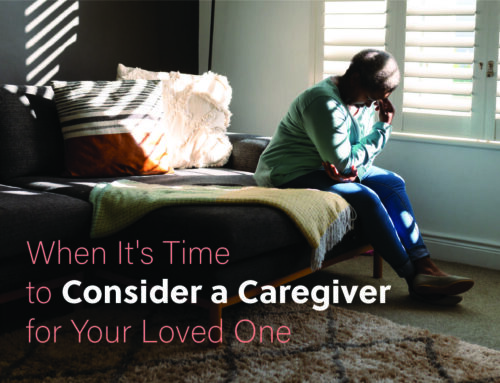Dementia Triggers
Dementia is an aging factor that’s hard to avoid. It’s very helpful to stay educated because you will likely experience it. When I personally interview caregivers I use a redirection scenario. Caregivers Love Right refers use skills in Dementia Redirection to be successful in caring for their clients. It changes the focus from a dangerous behavior to a manageable outcome. Behaviors can present in many different forms, depending on a number of variables.
- Medication
- Sleep
- Personality
- Disease progression
- Knowledge of their triggers
Can You Imagine?
Imagine for yourself that you get out of bed, start getting ready for work but you can’t find the right shoes. All you have are slippers, so you get irritated and are frantically looking for your dress shoes because you don’t want to be late for work again. Your husband walks in to the bedroom and asks you what you’re doing. With a confused look he tells you that you are not going to work today. He adds that you haven’t worked in 5 years, since you retired. He has suddenly let you in on the life you forgot. You learn all over again that your brain is not working like it should. Ouch!
The Art of Redirection
When you encounter Dementia directly, you learn to manage situations differently. There have been long studies on the effect of correcting a Dementia patient. To dismiss or correct the reality he or she is living, in that moment, can be damaging psychologically. I see redirection as an art form. Make it a delicate approach with body language, temper, and understanding of the present changes, mood and knowledge. So let’s try something, shall we?
Example Scenario:
Your Mom becomes uncomfortable in unfamiliar places since she moved in to your house. She wakes up not knowing where she is and wants to go home. You have tried to correct her before with no avail. When she is lucid she understands where she is and has comfort in knowing you are looking after her. This is a fictional outline. You can fit this into many situations.
You walk into your mother’s room to see her packing her clothes into a suitcase.
Possible Redirect:
“Hi Mom, what are you packing for?” she says “I’m going to go home now, and I need some of my things.”
The mood is still light.
Idea 1: Say something to the effect “I just made some lunch, why don’t we sit down and eat and I’ll help you when we’re done.” This is a safe redirect to get her focused on something other than her discomfort, but she still thinks her end goal is possible. This doesn’t always work if they’re adamant. In that case try idea 2.
Idea 2: Offer to help pack and drive her home. (This has been brilliant with people I’ve cared for). Pack up, get to the car and drive to lunch or a familiar place. It’s safe to say that she won’t know where you’re driving. The movement and changing the conversation will help her focus on something else. It will require your redirection through alternative topics. During the ride you should mention driving back to your place. If the idea doesn’t seem displeasing, go back.
The goal is to grab their attention to avoid negative behavior until they forget about there original negative thought. Information helpful to a successful redirect includes:
- Character details (What type of person were/are they)
- Insight into family dynamic
- Triggers (what makes them angry)
- Favorites (places, foods, people, conversations, etc.)









[…] has been the primary caregiver for her husband, Charles*, who lives with Dementia. He has been living with the condition for several years and is declining. Susan is his primary […]